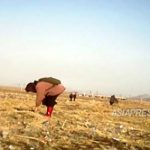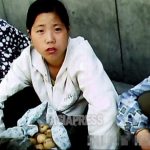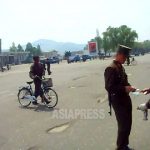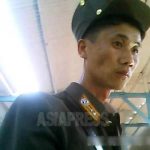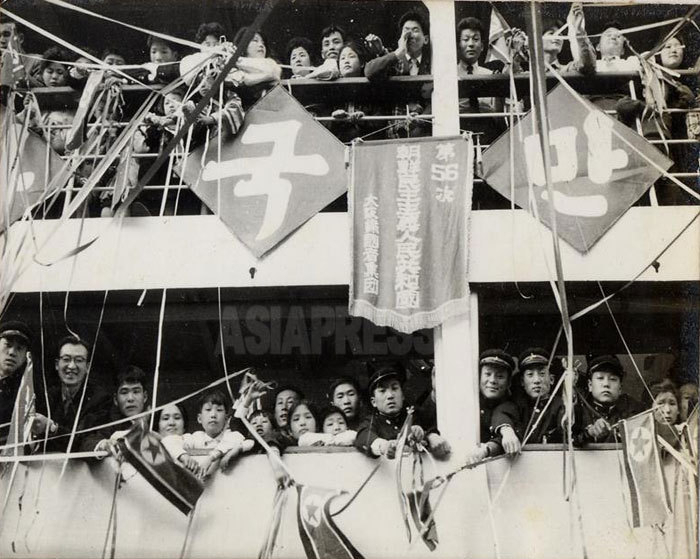
◆“They kept me from seeing my son’s body.”
ASIAPRESS hosted an event on July 8th where Park, who now lives in South Korea after defecting from the North, was invited to share her experiences. This is her story.
"My father, who came to Hiroshima from Gyeongsang Province, ran a lumbermill. Business was bad after the war and we didn’t have enough money to send my younger sibling to high school. One day, an executive of the pro-North Korean General Association of Korean Residents in Japan came to our home and persuaded my parents to return to North Korea, saying that they would be able to send their children to school in Korea. When we got to North Korea, I was disappointed and thought, “Am I really going to live here?” It was cold, food rations weren’t enough to feed the family, and we didn’t have sufficient daily goods such as clothes and soap.
Eight out of Park’s ten siblings returned to North Korea. Park’s older brothers, who remained in Japan, worked hard to send money to North Korea every year so the rest of the siblings could make ends meet. Unfortunately, in the mid-1970s her two brothers were arrested in Japan for political crimes.
“One of my brothers was arrested on his way to work and we have lost contact since. I still don’t know why he was arrested, where he may be detained, or even whether he is alive or dead. I think the whole case may have been fabricated from the start to cut the supply of money being sent from Japan. There were also many other returnees who were targeted."
The tragic story did not end there. In the 1980s and 90s, Park’s two sons in North Korea were also arrested on charges of political crimes. The younger son died during interrogation but Park was not allowed to see or claim his body. Soon after, her family was banished to a rural area and kept under surveillance. During the late 90s, North Korea was experiencing unprecedented social turmoil and countless people faced starvation.
"This society is no longer a place where people can live," Park thought.
She decided to escape North Korea with the help of her relatives in Japan.
There are many other returnees from Japan who, like Park, defected from North Korea. Today there are around 150 in Tokyo, 50 in Osaka, and 300 in South Korea —and they are an aging group. In order to document what kind of life the returnees had in North Korea, we founded the ‘Group for the Documentation of the Memories of North Korean Returnees’. The purpose of this group is to meet with returnees in Japan and South Korea and document their stories in detail.
In the 1950s and 60s, many Zainichi Koreans suffered from discrimination and lived in poverty. The pro-North Korean General Association of Korean Residents in Japan appealed specifically to these people to return to the socialist homeland. Additionally, political parties, including the Liberal Democratic Party and Japanese Communist Party, considered their struggle as a humanitarian issue and, as a solution, supported the exodus of Zainichi Koreans to North Korea. In other words, through neglect and discrimination, Japanese society pressured the 93,000 Zainichi Koreans onto the ships. However, we still know almost nothing about how they fared in North Korea.
History is the aggregation of human memories and records. The Zainichi Koreans and Japanese will work together to ensure that the memories of the returnees are etched in history.
(Contact: 1959kikoku@gmail.com)
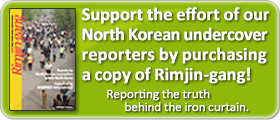 Editor’s notes on North Korean reporters
Editor’s notes on North Korean reporters
ALL REPORTS >>>
ARCHIVE(pdf) >>
DPRK MAP >>
